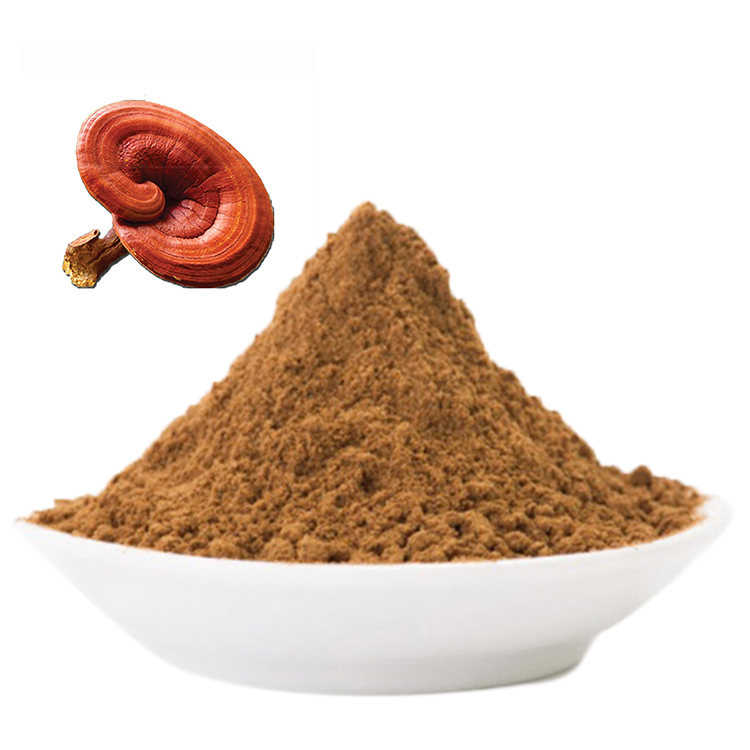Seasonal allergies, also known as allergic rhinitis or hay fever, affect millions of people worldwide. Symptoms like sneezing, nasal congestion, itchy eyes, and throat irritation can seriously impact quality of life, productivity, and even sleep. While antihistamines and corticosteroids are commonly prescribed, more people are turning to natural remedies for long-term immune support. Among these, Reishi mushroom extract—renowned in Eastern medicine for centuries—has emerged as a promising candidate. But can Reishi extract truly help with seasonal allergies? Let’s explore the science, mechanisms, and practical applications.
1. Understanding Seasonal Allergies
Seasonal allergies are immune reactions triggered by environmental allergens, most commonly pollen from trees, grasses, and weeds. The body identifies harmless particles as threats, releasing histamines and other mediators that cause inflammation. Chronic inflammation leads to persistent symptoms, making effective immune modulation a priority for sufferers.
2. What Is Reishi Mushroom?
Reishi mushroom, scientifically known as Ganoderma lucidum, is a staple in traditional Chinese and Japanese medicine. Often referred to as “Lingzhi” in Chinese, Reishi has been valued for its immune-modulating, anti-inflammatory, and adaptogenic properties. The mushroom contains a range of bioactive compounds, including polysaccharides, triterpenoids, peptidoglycans, and more.
3. Key Bioactive Components in Reishi
Polysaccharides: Support immune system balance, enhance the activity of immune cells, and have anti-allergic effects.
Triterpenoids: Possess potent anti-inflammatory and anti-histamine properties, potentially reducing allergic reactions.
Beta-glucans: Stimulate macrophages and natural killer cells, helping regulate immune overreactions.
4. Scientific Evidence: How Does Reishi Extract Affect Allergies?
Immune Modulation
Reishi mushroom extract may help regulate immune system responses. Research indicates that its polysaccharides and triterpenoids modulate cytokine production, supporting a more balanced immune reaction instead of the hypersensitivity seen in allergies. This effect helps minimize the excessive release of histamines and other allergy mediators.
Anti-Inflammatory Actions
Ganoderma extract, which refers to the concentrated bioactive constituents from the mushroom, has demonstrated significant anti-inflammatory potential in laboratory and animal studies. By reducing inflammation, the extract may alleviate the swelling and irritation that cause allergy symptoms.
Mast Cell Stabilization
Mast cells are critical in allergic responses, releasing histamine and other chemicals upon exposure to allergens. Ganoderma lucidum extract has been shown in some studies to stabilize these cells, decreasing their tendency to release histamines unnecessarily.
Antioxidant Support
Oxidative stress contributes to inflammation and tissue damage during allergic reactions. Lingzhi extract offers robust antioxidant effects, protecting nasal and respiratory tissues from damage during allergy attacks.
5. Human Studies and Clinical Use
While most research on Reishi mushroom extract has been preclinical, a few human studies suggest benefit. Some trials report reduced nasal congestion, improved quality of life, and lower allergy symptom scores among individuals taking Reishi supplements. Importantly, these benefits are often seen when the extract is used consistently over several weeks.
6. Dosage, Safety, and Usage
Typical Dosage: Most studies use doses ranging from 500 mg to 2,000 mg per day of standardized extract.
Forms Available: Capsules, powders, and tinctures.
Safety: Reishi mushroom extract is generally safe for most people when taken at recommended doses. Mild side effects such as digestive upset can occur in rare cases. Individuals with bleeding disorders or on anticoagulants should consult a healthcare professional before use.
7. Comparing Reishi Extract to Conventional Treatments
Unlike antihistamines that only target symptoms, Reishi mushroom extract works by modulating the immune system and reducing the underlying inflammation responsible for allergies. It may take longer to notice effects, but many users report more sustainable improvements with fewer side effects.
8. Choosing a Quality Product
To maximize benefits, look for products labeled as “Reishi mushroom extract,” “Ganoderma extract,” or “Ganoderma lucidum extract,” ideally standardized for polysaccharide or triterpenoid content. Reputable brands often conduct third-party testing to ensure purity and potency.
9. Integrating Reishi into an Allergy Management Plan
While Reishi extract can be a valuable addition, it should complement—not replace—other allergy management strategies:
Avoid known allergens where possible
Maintain good indoor air quality
Use nasal rinses and other supportive measures during peak pollen seasons
Consult with a healthcare provider before adding supplements, especially for those with underlying health conditions or who are taking medication
10. Final Thoughts
Current evidence suggests that Reishi mushroom extract, with its immune-modulating and anti-inflammatory effects, holds promise for managing seasonal allergies. Its unique compounds—especially those found in Lingzhi extract and Ganoderma lucidum extract—help stabilize immune function and may provide lasting relief for allergy sufferers. However, further clinical research is needed to establish standardized dosing protocols and confirm long-term efficacy.
If you’re considering Reishi mushroom extract as part of your allergy management, choose a high-quality supplement, use it consistently, and consult your healthcare provider for guidance. By supporting the immune system holistically, Reishi may help you breathe easier during allergy season.
Ganoderma extract, Ganoderma lucidum extract, Lingzhi extract, Reishi mushroom extract, allergy relief, natural allergy remedy, immune support, anti-inflammatory supplement, seasonal allergy supplement, herbal extract, adaptogen, mushroom supplement, hay fever support, pollen allergy, natural antihistamine, holistic allergy treatment, nasal congestion remedy, antioxidant support, respiratory health, allergy immune balance, natural immune booster, immune modulation, anti-histamine properties, mushroom-based supplement, Reishi powder, Reishi capsules, mushroom extract supplement, herbal medicine, immune balancing, triterpenoids, polysaccharides, allergy management, immune system support, allergy defense, wellness supplement, allergy symptom relief, immune wellness, natural supplements, plant-based remedy, holistic health, botanical supplement, wellness routine.
Ganoderma extract, Ganoderma lucidum extract, Lingzhi extract, Reishi mushroom extract, allergy relief, natural allergy remedy, immune support, anti-inflammatory supplement, seasonal allergy supplement, herbal extract, adaptogen, mushroom supplement, hay fever support, pollen allergy, natural antihistamine, holistic allergy treatment, nasal congestion remedy, antioxidant support, respiratory health, allergy immune balance, natural immune booster, immune modulation, anti-histamine properties, mushroom-based supplement, Reishi powder, Reishi capsules, mushroom extract supplement, herbal medicine, immune balancing, triterpenoids, polysaccharides, allergy management, immune system support, allergy defense, wellness supplement, allergy symptom relief, immune wellness, natural supplements, plant-based remedy, holistic health, botanical supplement, wellness routine.
Read More:
Real Consumer Feedback on Ganoderma Extract: Honest Reviews & Global Insights
Thirty Days on Ganoderma Extract: What Changed in My Body?
Precautions and Contraindications When Taking Ganoderma Extracts: A Comprehensive Guide
Hangzhou Molai Biotech Co., Ltd has supply capacity 1200+ tons per year for mushroom powders and extracts, including the mushroom mycelium from modern technology of Deeply Liquid Fermentation and fruiting bodies from the grown real mushrooms to meet the different markets.
Hangzhou Molai Biotech Co., Ltd supplies the products both in Powders and Extracts for commercial using worldwidely, such as Cordyceps Sinensis, Cordyceps Militaris, Maitake Mushroom, Lion’s Mane Mushroom, Turkey Tail Mushroom, Reishi Mushroom, Chaga Mushroom etc.
We offer OEM and ODM services, could extract the products according to your special requirements, process the powders/extracts into Capsules, Tablets, Small Bags, Mushroom Bars, Mushroom Coffee etc.
Organic Lion's Mane Mushroom Extract
Organic Reishi Mushroom Extract
Organic Cordyceps Militaris Extract
Organic Turkey Tail Mushroom Extract
Organic Chaga Mushroom Extract
Organic Shiitake Mushroom Extract
Organic Maitake Mushroom Extract
Organic Tremella Mushroom Extract






